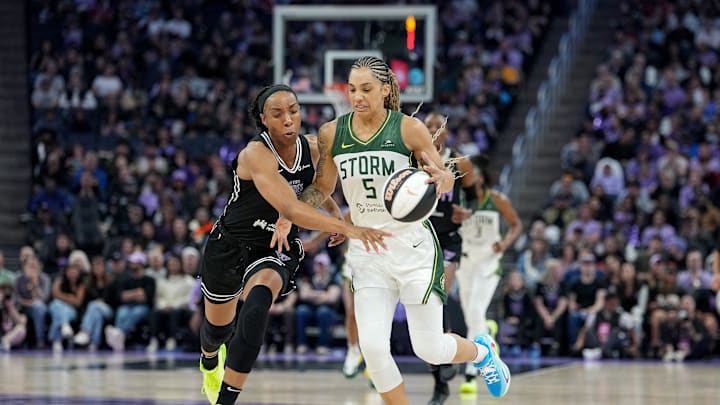While the 2025 WNBA season is generating numerous headlines, a significant one looms in the background: the impending Collective Bargaining Agreement (CBA) negotiations. A new deal, expected before the 2026 season, will be crucial as the league's popularity surges. The players' union (WNBPA) now has newfound leverage to challenge a key aspect of the previous CBA: the player prioritization policy.
This rule, designed to keep stars in the WNBA during the offseason, has become an increasing point of contention as the league evolves — and if leadership wants to sort it out, they need to turn to the people who matter the most: the players.
The Prioritization Predicament
The prioritization policy was initially designed to ensure the WNBA remained the top global women's basketball league and to retain star players, preventing situations like Diana Taurasi's 2015 decision to skip the WNBA season after her Russian club paid her to sit out. The rule states that players with three or more years of league service must report to their WNBA teams by specific deadlines or face ineligibility for the season. While the WNBPA accepted this trade-off for increased salaries in the 2020 CBA, in practice, it has forced some players, particularly international stars, to choose between more lucrative overseas earnings and their WNBA commitments. With an average WNBA salary of $147,745, this pay difference creates a very real financial dilemma.
The WNBPA views this policy as a severe limitation on player autonomy and earning potential. While the league emphasizes its importance for product quality, ensuring star players are healthy and engaging with fans in their market and in the off-season, the WNBA's short summer season makes it challenging for players to maximize their earnings throughout the rest of the year. With the current CBA expiring, prioritization is set to be a key negotiating point in securing higher salaries for WNBA players.
WNBPA's Demands: A "Transformational" Shift
Led by Seattle Storm President Nneka Ogwumike, the WNBPA has been vocal about their desire for a "transformational" CBA. Their core demands extend beyond just prioritization, though it remains a significant factor. Key areas of focus include:
- Increased Salaries and Revenue Share: Players argue that with the WNBA's increasing popularity and a new media rights deal (reportedly $2.2 billion over 11 years starting in 2026), salaries should reflect the league's growth, and players should receive a greater share of league revenue.
- Guaranteed Charter Travel: While temporarily provided for 2024 and 2025, the WNBPA wants full-time charter travel permanently included in the new CBA to ensure player health, safety, and well-being.
- Flexibility on Prioritization: While likely not eliminated, the WNBPA will push for changes that offer more flexibility for players, especially international athletes and those participating in national team duties like EuroBasket.
The Leverage of New Domestic Leagues
The emergence of new U.S. professional basketball leagues, such as Unrivaled and Athletes Unlimited, significantly strengthens the WNBPA's negotiating power regarding prioritization. These leagues offer players a compelling domestic option for high-level competition and increased income during the WNBA offseason, eliminating the need for international travel or the risk of prioritization penalties.
Unrivaled, for example, has offered average salaries of around $220,000 for an eight-week season, in addition to player equity. This directly addresses the historical issue of WNBA players needing to go abroad to supplement their offseason income. The financial appeal has been further highlighted by top draft pick Paige Bueckers, who signed a three-year deal with Unrivaled that will pay her more in her first year than her entire WNBA rookie contract, plus equity in the league.
The WNBA's unprecedented growth, combined with the WNBPA's unified demands and the rise of other domestic leagues, has fundamentally shifted the balance of power. To retain its top talent and ensure continued growth, the league must now prioritize its most valuable assets: the players.
